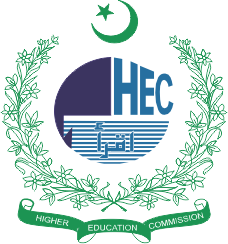AI-Driven Climate Change Communication Strategies in International Diplomacy
DOI:
https://doi.org/10.55737/trt/SR25.130Keywords:
Artificial Intelligence (AI), Climate Change Communication, International Diplomacy, Global Governance, Natural Language Processing (NLP)Abstract
The article explains the wide implications of artificial intelligence (AI) to the transformation of how the issue of climate change is being communicated at the international diplomatic level. As the role of climate change in international governance continues to grow, there is a need to devise efficient communication policies that will support international cooperation and the successful negotiation and implementation of climate agreements. This paper attempts to describe how artificial intelligence (AI) technologies (natural language processing (NLP), machine learning, and high data analytics) may be applied to diplomatic speech. Not only to improve communication but also to adapt the communication to various cultural, political, and socio-economic environments is the focus. In order to be more effective and prove clearly and convincingly why the climate crisis can be called a serious issue, refute fake facts, and engage various stakeholders, including governments, non-governmental organizations, and civil society in a successful dialogue, the governments, policymakers, and international organizations can resort to the power of artificial intelligence (AI). The article describes the application of AI to enhance the provision of messages related to climate in a manner which is sensitive to the values and norms of various countries. The paper concludes by adding to the existing body of knowledge the question whether the concept of artificial intelligence (AI) can be deployed in a strategic manner in order to better global climate governance and assist all people in recognizing the potential and rational climate solutions.
References
Adler, E. (1997). Seizing the middle ground: Constructivism in world politics. European journal of international relations, 3(3), 319-363. https://doi.org/10.1177/1354066197003003003
Betzold, C., Castro, P., & Weiler, F. (2012). AOSIS in the UNFCCC negotiations: from unity to fragmentation. Climate policy, 12(5), 591-613. https://doi.org/10.1080/14693062.2012.692205
Bodansky, D. (2010). The Copenhagen climate change conference: A postmortem. The American Journal of International Law, 104(2), 230–240. https://doi.org/10.5305/amerjintelaw.104.2.0230
Campbell, J., & Barnett, J. (2010). Climate change and small island states: power, knowledge and the South Pacific. Routledge. https://doi.org/10.4324/9781849774895
Crawford, N. C. (2021). Democracy and the Preparation and Conduct of War. Ethics & International Affairs, 35(3), 353-365. https://doi.org/10.1017/S0892679421000381
De Moor, J., Uba, K., Wahlström, M., Wennerhag, M., & De Vydt, M. (2020). Protest for a future II: Composition, mobilization and motives of the participants in Fridays for Future climate protests on 20-27 September, 2019, in 19 cities around the world. http://dx.doi.org/10.17605/OSF.IO/ASRUW
Dryzek, J. S., & Stevenson, H. (2011). Global democracy and earth system governance. EcologicalEconomics, 70(11), 18651874. https://doi.org/10.1016/j.ecolecon.2011.01.021
Eubanks, V. (2018). Automating inequality: how high-tech tools profile, police, and punish the poor. (No Title).
Falkner, R. (2016). The Paris Agreement and the new logic of international climate politics. International Affairs, 92(5), 1107-1125. https://doi.org/10.1111/1468-2346.12708
Grubb, M. (1999). The Kyoto Protocol-A guide and assessment. Nature, 402(6759), 233-234. https://cir.nii.ac.jp/crid/1570291226457072896
Hickmann, T. (2017). The reconfiguration of authority in global climate governance. International Studies Review, 19(3), 430-451. https://doi.org/10.1093/isr/vix037
Lewandowsky, S., Ecker, U. K., & Cook, J. (2017). Beyond misinformation: Understanding and coping with the “post-truth” era. Journal of applied research in memory and cognition, 6(4), 353-369. https://doi.org/10.1016/j.jarmac.2017.07.008
Taddeo, M., & Floridi, L. (2018). How AI can be a force for good. Science, 361(6404), 751-752. https://doi.org/10.1126/science.aat5991
Vinuesa, R., Azizpour, H., Leite, I., Balaam, M., Dignum, V., Domisch, S., ... & Fuso Nerini, F. (2020). The role of artificial intelligence in achieving the Sustainable Development Goals. Nature communications, 11(1), 233. https://doi.org/10.1038/s41467-019-14108-y
World Economic Forum. (2023). Top 10 Emerging Technologies of 2023 report. World Economic Forum. https://www.weforum.org/publications/top-10-emerging-technologies-of-2023/
Downloads
Published
Issue
Section
License
Copyright (c) 2025 Irfan Ali Pitafi, Mahroz Ali Lak, Nemat Ullah Pitafi, Muhammad Azhar Ul Deen Pitafi

This work is licensed under a Creative Commons Attribution-NonCommercial 4.0 International License.





